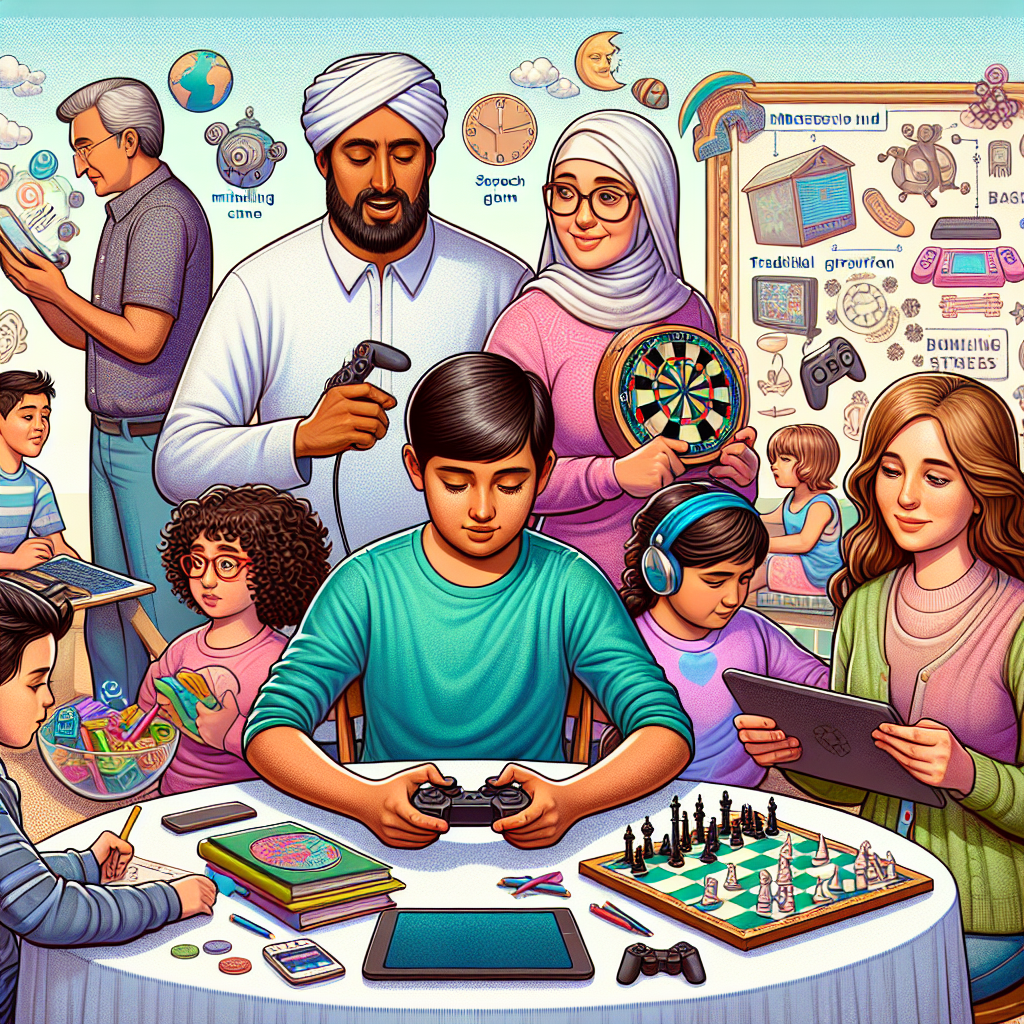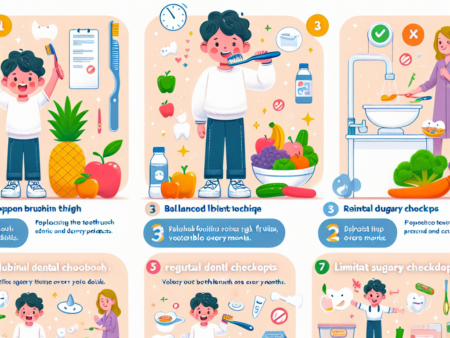Tips menjaga kesehatan mental anak di era digital: batasi waktu layar, dorong interaksi sosial, berikan dukungan emosional, dan ajak beraktivitas fisik.
Cara Menjaga Kesehatan Mental Anak di Era Digital
-
Table of Contents
- The Importance of Mental Health in Children
- The Impact of Digital Technology on Children’s Mental Health
- Practical Tips for Maintaining Children’s Mental Health
- 1. Set Screen Time Limits
- 2. Encourage Face-to-Face Interactions
- 3. Teach Digital Literacy and Online Safety
- 4. Create a Technology-Free Zone
- 5. Foster Open Communication
- Conclusion
The Importance of Mental Health in Children

Mental health is an essential aspect of overall well-being, and this holds true for individuals of all ages, including children. In recent years, there has been a growing concern about the mental health of children, particularly in the era of digital technology. The rapid advancement of technology has brought about numerous benefits, but it has also posed challenges to the mental well-being of children. This article aims to explore the importance of maintaining mental health in children and provide practical tips for parents to safeguard their children’s mental well-being in the digital era.
The Impact of Digital Technology on Children’s Mental Health
The digital era has revolutionized the way we live, work, and communicate. Children today are growing up in a world where digital devices are an integral part of their daily lives. While technology offers various educational and entertainment opportunities, excessive screen time and exposure to online content can have detrimental effects on children’s mental health.
1. Social Isolation: Spending excessive time on digital devices can lead to social isolation, as children may prioritize virtual interactions over face-to-face interactions. This can result in feelings of loneliness and a lack of social skills.
2. Cyberbullying: The rise of social media platforms has increased the risk of cyberbullying, which can have severe psychological consequences for children. Cyberbullying can lead to low self-esteem, anxiety, and even depression.
3. Sleep Disturbances: The blue light emitted by screens can disrupt the production of melatonin, a hormone that regulates sleep. Excessive screen time before bed can lead to sleep disturbances, which can negatively impact a child’s mental health and overall well-being.
Practical Tips for Maintaining Children’s Mental Health
While it may be challenging to completely eliminate digital technology from children’s lives, there are several strategies parents can employ to promote and maintain their children’s mental health in the digital era.
1. Set Screen Time Limits
Establishing clear boundaries and setting limits on screen time is crucial for children’s mental well-being. The American Academy of Pediatrics recommends no more than two hours of recreational screen time per day for children aged 6 and older. Parents should enforce these limits and encourage alternative activities such as outdoor play, reading, or engaging in hobbies.
2. Encourage Face-to-Face Interactions
Parents should prioritize and encourage face-to-face interactions for their children. This can be achieved by organizing playdates, family outings, and engaging in activities that promote socialization. By fostering real-life connections, children can develop essential social skills and reduce the risk of social isolation.
3. Teach Digital Literacy and Online Safety
It is crucial for parents to educate their children about digital literacy and online safety. Teaching children about responsible internet use, the importance of privacy settings, and how to identify and report cyberbullying can empower them to navigate the digital world safely and confidently.
4. Create a Technology-Free Zone
Designating specific areas or times in the house as technology-free zones can help children establish a healthy balance between screen time and other activities. For example, the dining table can be a technology-free zone during meal times, allowing for uninterrupted family conversations.
5. Foster Open Communication
Encouraging open communication with children is vital for understanding their thoughts, feelings, and concerns. Parents should create a safe and non-judgmental environment where children feel comfortable discussing their experiences online. This can help identify any potential issues early on and provide necessary support.
Conclusion
Maintaining children’s mental health in the era of digital technology is a pressing concern. While technology offers numerous benefits, it also poses risks to children’s mental well-being. By setting screen time limits, encouraging face-to-face interactions, teaching digital literacy, creating technology-free zones, and fostering open communication, parents can play a crucial role in safeguarding their children’s mental health. It is essential to prioritize the mental well-being of children and equip them with the necessary skills to navigate the digital world safely and responsibly.







